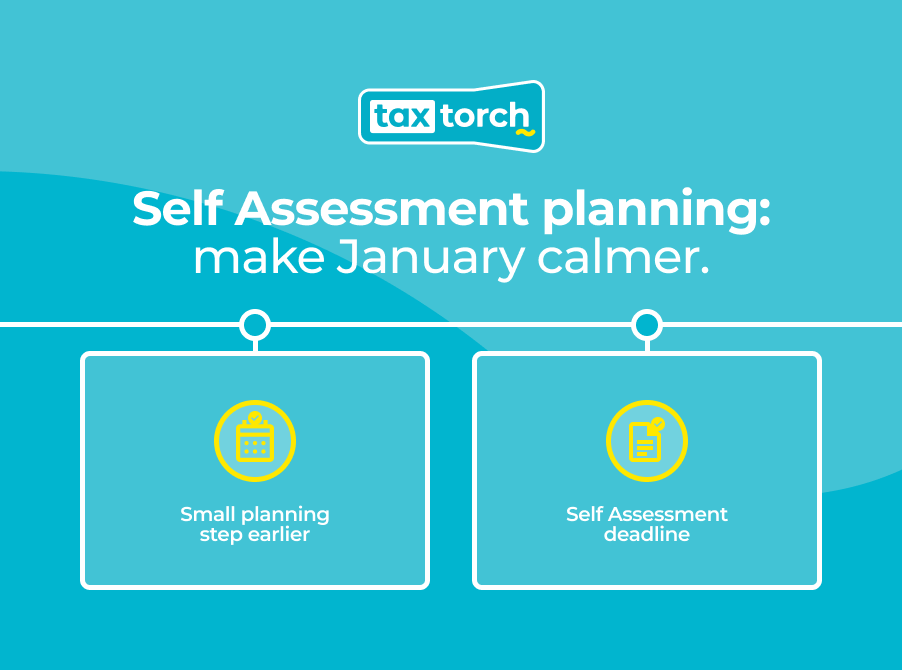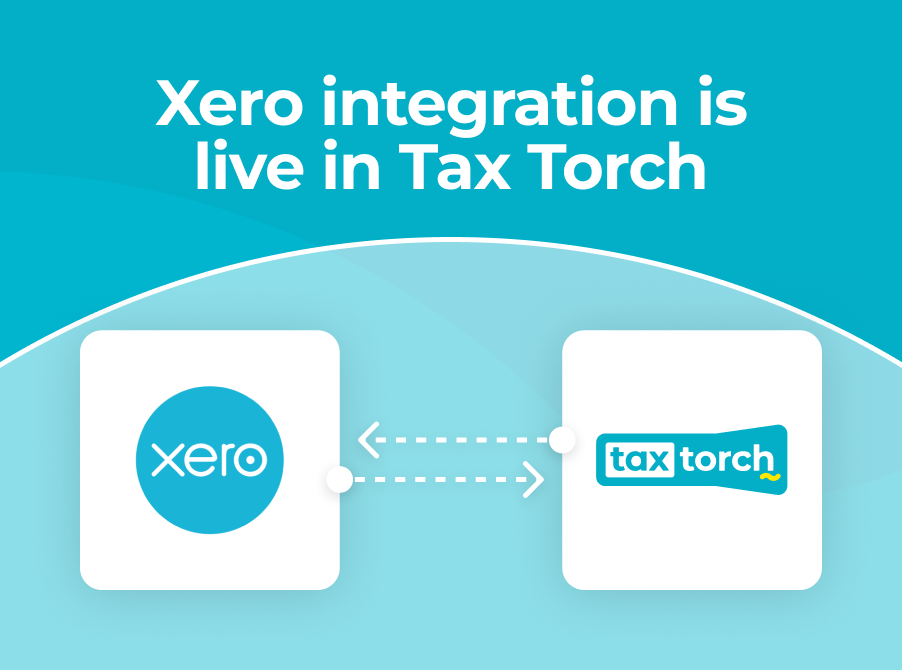When you think of personal tax planning, what comes to mind?
If you answered ‘self-assessments’ or ‘tax returns’, you’re right, but that’s barely scratching the surface (although for many firms, that’s the extent of their personal tax services).
If your firm is in a similar spot, you could be missing an opportunity to set yourself apart by providing the personalised, proactive tax planning that other firms don’t.
In this article, you’ll learn the differences between basic personal tax services and proactive tax planning, how to find the right clients that need proactive tax planning, and how to deliver it at scale.
Because isn’t it time your firm went beyond the box-ticking of compliance?
Basic personal tax services vs. Proactive tax planning
Before jumping into the benefits of proactive tax planning, let’s look at the differences between basic personal tax services and proactive tax planning first.
When we say basic personal tax services, we’re talking about things like:
- Filing self-assessment returns
- Calculating tax liabilities
- Meeting compliance deadlines
Basic personal tax services are reactive and usually bound by legally mandated deadlines based on historical dates, such as 31 January, and failure to meet those deadlines can result in late penalties.
On the other hand, proactive tax planning involves:
- Aligning taxes with client goals
- Exploring long-term tax scenarios
- Proactively optimising tax strategies
As you can see, proactive tax planning is more complex and in-depth, and unlike basic personal tax services, it’s not based on deadlines. Instead, proactive tax planning is based on current data and future projections.
In other words, the difference between basic personal tax services and proactive tax planning is the difference between following the rules versus planning for the future. It’s also why proactive tax planning is more complex — you have to account for factors like the client’s goals and their business performance.
4 clients who’d benefit most from proactive tax planning
Not everyone needs proactive tax planning. Those with relatively simple tax situations like PAYE employees and people who earn below their Personal Allowance likely won’t benefit much.
But if you’re wondering who needs proactive tax planning services, here are four types of clients to look for…
1. Clients with complex tax situations
This type of client typically has multiple income streams, which can include a mix of employment, dividends, savings, property, and other income. These clients are generally high-earners looking for ways to minimise their tax burden and avoid higher tax brackets.
For example, a client with a high-earning day job in the UK who also freelances, has investments and savings would likely see a lot of value in your proactive tax planning services.
2. Clients experiencing major life changes
Proactive tax planning requires getting to know clients on a deeper, more personal level because major life changes and milestones can have huge tax implications.
This includes events like:
- Buying or selling property
- Starting a new business
- Get investments for their current business
- Early retirement
- Switching careers
- Receiving an inheritance or large gift
- Getting married or starting a family
That’s why the best tax planners have periodic check-ins with clients throughout the year to stay updated on what’s going on in their lives — it’s what puts the ‘proactive’ in ‘proactive tax planning’. Waiting until the last minute (or only meeting clients once a year) risks limiting the effectiveness of your tax planning services.
3. Clients with long-term financial goals
Proactive tax planning is all about planning for the future, so clients with long-term financial goals are ideal candidates for these types of services. Whether they’re saving up for retirement, planning for their kid’s higher education, or building a financial safety net, you can help them achieve these goals.
Other long-term goals include wealth transfer planning (like inheritance or gifts) and future-proofing their assets — all of which can be aided with proactive tax planning.
4. Clients frustrated by basic services
Sometimes, it’s the clients who want more because they’re frustrated with the basic personal tax services provided by their firm. They’re looking for a relationship that goes beyond the once-a-year meetings and actually want advice to help them lessen their future tax liabilities.
These can often be the clients who are surprised by their tax bill and start asking questions, why wasn’t I aware it be this much? what should we have done differently? Do I need another accountant?
This type of client is looking for a proactive, personalised approach and they will even leave their current firm if they feel like they aren’t doing enough. So if any of your clients start asking about future planning, financial goal setting, or tailored strategies, it’s a good sign that they’re looking for proactive tax planning.
Why so many firms miss these tax planning opportunities
There are many reasons why firms miss out on these tax planning opportunities. Sometimes, they’re overly focused on their compliance services, to the point where they’re too bogged down to do anything else. Staff aren’t going to be concerned with planning if they’re constantly firefighting compliance work just to keep things moving.
Firms might also lack the training, knowledge, or tools to properly integrate their clients’ goals into their tax strategies.
You’d also be surprised by how many clients aren’t even aware of what proactive tax planning is in the first place, and some firms lack the will or resources to educate them on the benefits, or they’re afraid clients won’t see the value in it even if they try.
Lastly, some firms are put off by proactive tax planning because they think it’s too complex and time consuming, or they’ve gotten too comfortable (or complacent) with their current service offerings.
Due to its personalised nature, tax planning can also be more difficult to scale, so this reluctance is understandable, but many firms underestimate the revenue potential of these services and the high-value opportunities proactive tax planning can bring in.
Clients are becoming more and more aware and demanding, firms who don’t offer these services will be left behind for the ones that do.
How to offer proactive tax planning
So let’s say you’re completely convinced that a new proactive tax planning service line is the best move for your firm. How would you go about selling it to clients?
Here are a few tips:
- Proactively engage clients: Initiate conversations about goals before the Self-Assessment deadlines (for best results, do this early and then schedule quarterly check-ins throughout the year).
- Build goal-centric frameworks: Use tax planning tools like Tax Torch to track client goals and align tax strategies with evolving client needs.
- Invest in scenario planning: Explore potential tax impacts of life events and decisions.
- Educate Clients: Position tax planning as a service that delivers long-term value.
Go beyond compliance with proactive tax planning
Proactive tax planning is a golden opportunity for firms and clients alike, delivering unmatched value while deepening the client relationship at the same time.
Tools like Tax Torch make proactive tax planning more accessible than ever. With its built-in centralised goal tracking, salary vs. dividend calculator, and scenario planning, Tax Torch allows practices of all sizes to offer tax planning services to large portions of their client base at a low cost.
Think about your own clients — how many of them could benefit from proactive tax planning?
Make proactive tax planning truly personal. Be the first to use Tax Torch.
You also might like

Self Assessment planning: how to make January calmer for your firm
Self Assessment does not have to dominate January. A light-touch, year-round approach to personal tax planning can reduce pressure on your firm.

Xero integration now live in Tax Torch to unlock personal tax planning insights
Connect Xero to Tax Torch and bring live business data into personal tax planning. Instantly view dividends, director’s loans, and business performance.







